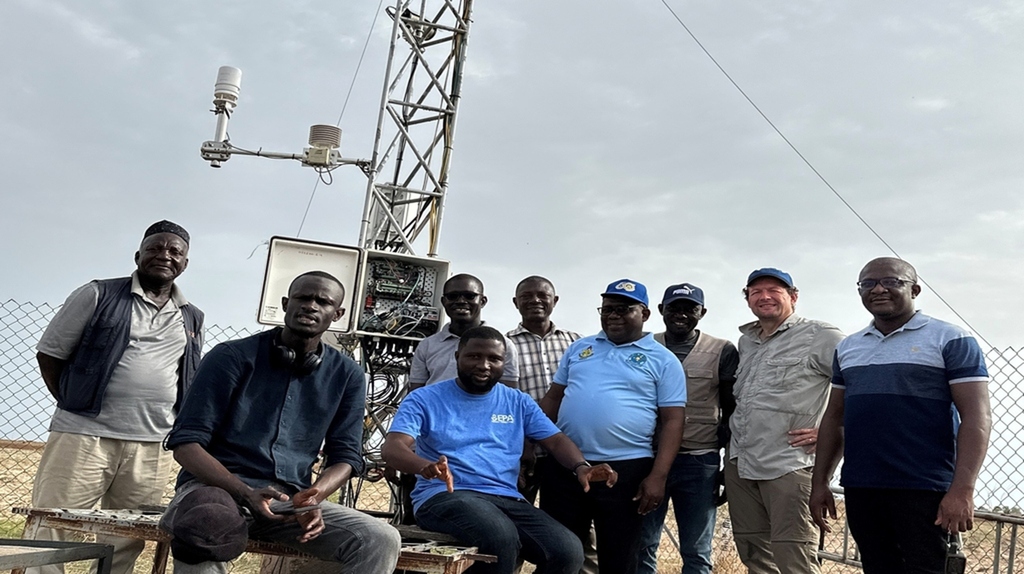KIT contributes to the research program "Changing Earth - Sustaining our Future" in the Helmholtz Research Field Earth and Environment.
The atmosphere is the Earth's thin protective layer that shields us from harmful radiation, moderates temperature differences, and redistributes thermal energy, water, and pollutants: Almost all life depends on it. This protective function is maintained by delicate balances and is vulnerable to global changes in climate and land use. The main drivers of climate change are the radiative effects of greenhouse gases and aerosols, which affect the composition and impact of the atmosphere on all aspects of societal activities.
We are developing seamless observational and modeling techniques to unravel the complex interactions of climate change between the atmosphere, land surface, and ocean. As focal areas, we are investigating changes in air quality - globally and in urban areas - the internal causes and effects of climate change through feedbacks, and what kinds of weather and extremes we will need to prepare for in the future. Advances in these areas are paramount for reliably assessing the state of the Earth system and for predicting and projecting global changes on our future living conditions.
[more]
Our research follows a holistic approach: we develop cross-scale observational and modeling solutions for improved atmospheric forecasts and regional climate projections with unprecedented resolution. We strive to observe, understand, and predict atmospheric phenomena and process chains from their origin to climate change impacts in the atmosphere, particularly in their interactions and feedbacks with the land surface, biosphere, cryosphere, oceans, and near-Earth space. Through our work, we can assess the physical, chemical, and socio-ecological consequences of atmospheric change and its impact on climate, extreme weather, and land ecosystem functioning.
In doing so, we increase knowledge to address societal challenges such as global warming, growing world population, land use change, air quality, water availability, and energy and mobility change. Our atmospheric and climate observation and modeling activities provide the scientific basis of sustainable development strategies for the benefit of society, ecosystems, and climate mitigation and adaptation combined with economic risk reduction.

The WASCAL research group around Prof. Dr. Kunstmann which engages in eddy-flux measurements of methane fluxes from rice cultivation and compensation options from natural forests in West Africa is nominated for the Frontier Planet price 2026. Forwarding to BBAW.
more
This research podcast discusses the future of skiing. Prof. Dr. Kunstmann discusses thawing permafrost, mudslides, rockfalls, altitude-dependent warming and the Alps as a climate change hotspot. He also talks about the challenges of artificial snowmaking. Forwarding to KIT.
more
As winter storms develop, energy released by cloud formation accelerates their intensification, bringing heavier rainfall and stronger wind gusts.
more
Prof. Dr. Harald Kunstmann discusses the practicality of artificial snowmaking in ski resorts, its profitability and the shifting of the zero-degree line as an indicator of climate change. Tagesschau report (from minute 10:44) and report&interview (from minute 01:44). Forwarding to the Tagesschau.
more
BR24 report on the shift of the freezing level in the Alps (calculation based on climate models from KIT), the altitude of German ski resorts, the difference between the freezing level and the snow line, and much more, with commentary by Prof. Dr. Harald Kunstmann. Forwarding to BR24.
more
International Measurement Campaign Coordinated by IMKTRO Studies the Dynamics of Weather Systems over the North Atlantic
more